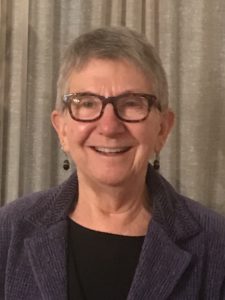
By Rabbi Linda Holtzman
Parshat B’midbar
It sometimes feels as if we are all b’midbar, in the wilderness, uncertain as to what to do next. In the wake of the horrific shooting at an elementary school in Uvalde, Texas, I am feeling that way.
Are we really living in a country that we can be proud of — one that is moving toward greater peace and justice? Or are we wandering in a wilderness with no clarity about how to stop the shootings and killings and the overwhelming gun violence from continuing? Of all the countries in the developed world, the United States has the highest percentage of deaths by gun violence, significantly higher than all the others.
During the days after the mass killing in Uvalde, we all witnessed the usual, now too-familiar response: tears and prayers, a desire to stand with the bereaved and saddened parents, friends and family of those killed, and politicians shouting about the need to do more to end this gun violence epidemic. Yet the next night in Philadelphia there was a shooting that injured three people and, in the days since, there have been many more shootings and killings.
As the headlines about Uvalde fade, the will to do something real about ending the scourge of gun violence in our country will lessen, and the serious work that it will take for us to make a real difference will dissipate. But it is so clear that we need to do something right now! This week’s parsha, B’midbar, gives us some hints about what needs to be done.
The first word in the parsha, in the whole book that we are starting to read, grounds us in the wilderness. Here we are with little clarity or certainty about what will happen next — about what we need to do.
In the midbar, anything can happen. And in this book, so many strange things take place: A donkey talks, an overabundance of quail descends for the people to eat, Moses hits a rock and water flows out for the people, and there’s a mutiny in the Israelite camp. The start of the book, however, the section we read this week, gives us guidance about how to weather these challenges.
First is the acceptance of the fact that we are all wandering in a wilderness. When we think that we know what will happen next, when we think we are in control in life, we need to face the truth. Just like the Israelites, none of us are in control. We are b’midbar where anything can happen. People plan, and God laughs is truer each day. So we enter the wilderness, and then? We aimlessly wander accepting all that we are given? Clearly not!
The rest of the Torah portion is not about aimless wandering at all. The Israelites organize their camp according to precise directions, find a way to create a safe, solid community, and organize their space and their community in thoughtful ways. They establish a census and pay careful attention to who is in the community, to what everyone’s needs are and to what each individual can contribute to all.
At the heart of the community is the mishkan, the Tabernacle where the presence of God dwells; this guarantees that no one can ever forget that the community is a holy one with its core values always at its heart.
In our world, we have entered the midbar, and we seem to be waiting for something to act to organize our community to stand up against the gun violence that is taking over. There is no one who is going to do the needed work except us. We need to keep our mishkan — our deepest values — in our heart and realize that by simply arming more people and giving the police more power and trying to guard our children’s schools, we are not doing the work that will build a safe, solid community. We are not following the Israelites’ example of doing thoughtful work in the face of uncertainty.
It is time for us to stop jumping for quick fixes whenever there is a shooting and to do the serious organizing and planning that can make real change. We can start by:
— providing fair and equal education to all students in our city’s schools.
— bringing jobs with livable wages to every Philadelphia neighborhood.
— creating youth programming that is creative and inviting for children in every neighborhood in Philadelphia.
— electing representatives who will keep guns off the streets and out of the hands of those who should not have them.
— changing the system to have nonpolice responders give people in emergency situations the care they need.
— fixing the streets and lights and all that is broken and overlooked in many Philadelphia neighborhoods.
— and so much more.
There are so many ways to step up to face the challenges that gun violence brings to our city. Together, we can work to create a safe and solid community with peace and justice at its heart. Once we are in the midbar, we have no choice.
Rabbi Linda Holtzman is on the faculty of the Reconstructionist Rabbinical College and is the rabbi of the Tikkun Olam Chavurah. The Board of Rabbis of Greater Philadelphia is proud to provide diverse perspectives on Torah commentary for the Jewish Exponent. The opinions expressed in this column are the author’s own and do not reflect the view of the Board of Rabbis.



